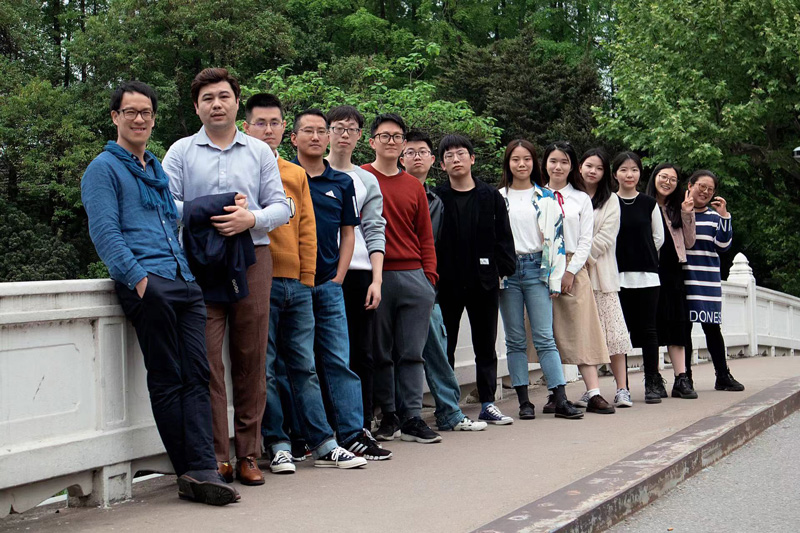A research team at Duke Kunshan University has shed light on metacognition in macaque monkeys, adding weight to the idea that non-human primates are aware of their mental state.
The two-year project, which involved testing monkeys’ abilities in a series of games, coupled with their confidence in winning, suggested they were conscious of their own capabilities, as well as identifying areas of the brain involved in metacognitive reasoning. The findings advance the argument that non-human primates are aware of their own mind and could also further understanding of how metacognition developed in humans.
“Since humans and macaques are both primates they share similar attributes, so we can learn about humans through comparisons between the species, and understand more about awareness from an evolutionary aspect,” said Yudian Cai, a post-doctor from East China Normal University and part time research scientist at DKU, who worked on the study, which was published in Communications Biology.

Cai worked with Zhiyong Jin, a research fellow at DKU, researchers from East China Normal University, including Chenxi Zhai and Huimin Wang, and from Shanghai Jiao Tong University, including Jijun Wang and Yingying Tang, on the project, which was supervised by Sze Chai Kwok, associate professor of cognitive neuroscience. They first taught a group of macaque monkeys how to play a series of games. One type of game involved looking at pictures and then later remembering which they had seen before from a set of images. In the other, monkeys were shown two images with differing degrees of clarity and asked to pick the less blurred of the two.
Once the monkeys had mastered how to play the games, a time element was introduced by requiring them to keep their hand on the chosen image to receive a reward. The amount of time they wagered on their decision, by keeping their hand on the image, was used as a proxy for confidence in their ability.
While they played the games, the monkeys were attached to a machine that perturbs brain activity using focal magnetic fields, a process called single-pulse transcranial magnetic stimulation.
The aim of the study, which was funded by National Natural Science Foundation of China, was both to test whether the monkeys were capable of metacognitive reasoning and identify which areas of the brain were involved in it at different stages.

Analysing the monkeys’ performance and confidence ratings using computer models (hierarchical Bayesian meta-d’ computational modelling), the team were able to determine metacognition – that the monkeys were aware and understanding of their own ability and thought process. The single-pulse transcranial magnetic stimulation also identified the metacognitive activity as taking place in the Brodmann area 46d, a part at the front of the brain which is shared by both monkeys and humans.
“We found that Brodmann area 46d plays a critical role in supporting metacognition independent of task performance; we also found that the critical role of this region in meta-calculation was time-sensitive,” said Cai.
“Additionally, we discovered that macaque metacognition is highly domain-specific with respect to memory and perception decisions,” he added.
The findings add weight to the body of evidence that says there is metacognition in non-human primates, as well as furthering understandings of where in the brain the processes of such awareness take place.
“The study was described as a milestone to understanding the neural mechanism of metacognition of the prefrontal cortex by one of the reviewers,” said Kwok.
Professor Kwok and his team will continue to focus on this field, with further studies on the relationship between learning and confidence being considered, as well as research into metacognition in humans.
More information about the study can be found on the lab website: www.kwoklab.org

